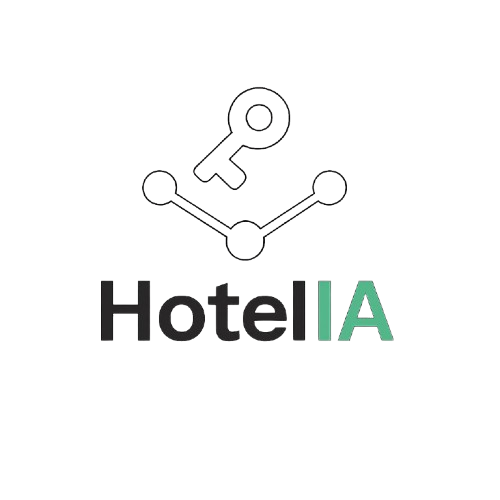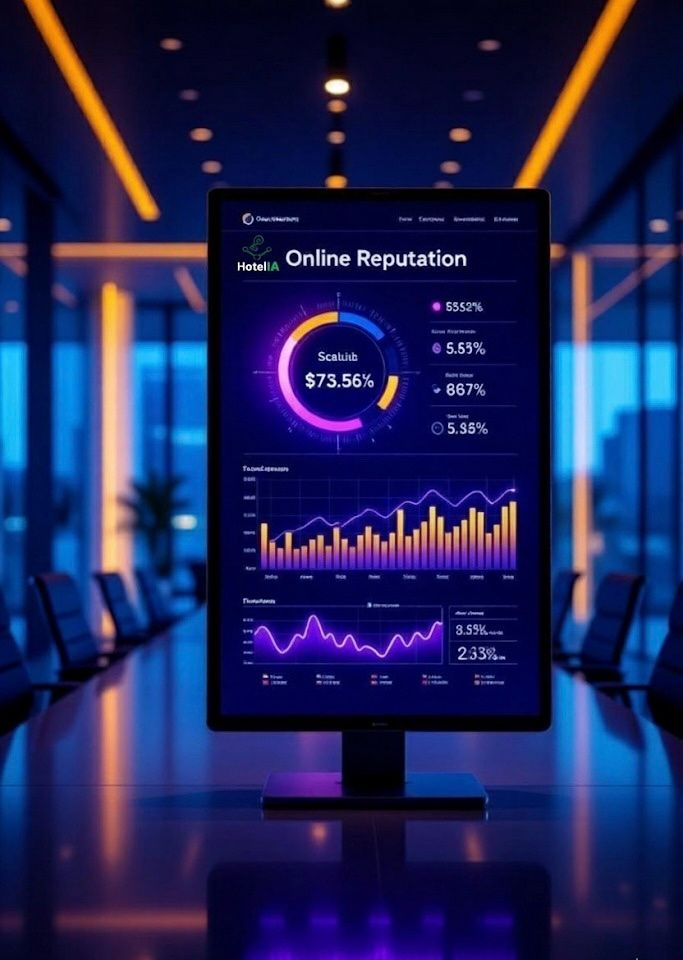Introduction: The Hidden Financial Liability Lurking in Your Reviews
A single negative review is not just an unhappy guest's opinion. It's an active, ongoing financial liability that costs you money every single day.
Here's the harsh reality most hotel managers don't realize:
- A drop of just one star in your rating can lead to a 5-9% decrease in revenue (Harvard Business School study)
- A single negative review can cause you to lose 22% of potential customers (Moz research)
- One unanswered negative review can drive away 60% of potential guests (30 out of 50)
Yet, most hotels approach reputation management reactively — waiting for the damage to occur before taking action. It's like waiting for the roof to collapse before fixing the leak.
This article reveals the true hidden cost of a damaged reputation and shows you how a proactive system can transform this liability into a profitable asset. By the end, you'll understand why your online reputation isn't just a marketing concern — it's a direct financial performance driver that deserves the same attention as your pricing strategy or occupancy rates.
Why Reviews Are the New Currency: The Psychology of Guest Trust
Hotels Are "Intangible Products" — Guests Need Guarantees
Unlike buying a car or a phone, a guest cannot "test" a hotel room before paying for it. This creates a fundamental problem: uncertainty and perceived risk.
This is where reviews become crucial. They function as a "digital warranty" for an intangible product.
The Numbers That Prove Reviews Rule Everything
The data is unequivocal:
- 81% of travelers "always" read reviews before booking a hotel
- 76% of travelers are willing to pay more for a hotel with better reviews
- 94% of consumers say an online review has convinced them to avoid a business
- 4 out of 5 consumers changed their mind about a purchase after reading negative reviews
Reviews have surpassed traditional advertising and even brand reputation as the most trusted source of information, ranking second only to direct recommendations from friends.
The Reactive Trap: Why Most Hotels Are Bleeding Money
Most hotels operate in what we call "The Reactive Trap" — a defensive posture that costs them dearly.
How Negative Reviews Actually Cost You Money (The Real Math)
Let's break down the actual financial impact with concrete numbers:
Scenario: You manage a 30-room hotel in Marrakech. Your average room rate is 800 MAD/night, with 70% occupancy.
Monthly Revenue Calculation:
- 30 rooms × 800 MAD × 30 days × 70% occupancy = 504,000 MAD/month
Now, let's say your rating drops from 4.5 stars to 3.5 stars due to accumulating negative reviews.
Research shows this drop causes:
- 5-9% revenue decrease (we'll use conservative 7%)
- 504,000 MAD × 7% = 35,280 MAD/month lost
- Annual loss: 423,360 MAD
But it gets worse. That's just the direct revenue impact. Add to that:
- Increased customer acquisition cost: You now need to discount more heavily to attract guests (additional 15-20% discount pressure)
- Lost premium pricing power: You can't charge the same rates as 4.5-star competitors
- Reduced direct bookings: More guests go through OTAs (15-20% commission vs. 3-5% for direct bookings)
Real total annual cost: 500,000-700,000 MAD
And here's the killer: This compounds every year you don't fix it.
The Three Hidden Costs Nobody Talks About
1. The "Death Spiral" Effect
Lower ratings → fewer bookings → need to discount → attract price-sensitive guests → more complaints → lower ratings → repeat
This isn't theoretical. Studies show that hotels below 4.0 stars experience an average 3% additional rating decline per year without intervention.
2. Staff Morale Tax
Dealing with constant negative feedback demoralizes your team:
- Higher turnover (replacement costs average 6-9 months salary per position)
- Lower service quality (burned-out staff provide worse service)
- Training costs (constantly training new staff)
3. The Opportunity Cost
Every hour you spend firefighting negative reviews is an hour not spent on:
- Revenue-generating activities
- Guest experience improvements
- Strategic planning
Key Takeaway: Reactive reputation management isn't just ineffective—it's expensive. The real cost isn't the lost booking, it's the systemic damage that accumulates over time.
The Proactive Alternative: Reputation as a Profit Center
Smart hoteliers have figured out something crucial: reputation management isn't a cost center—it's a profit center.
The Prevention Economics
Instead of waiting for problems to happen, proactive systems prevent them:
- Real-time guest feedback: Catch issues during the stay, not after they've left a 1-star review
- Automated satisfaction monitoring: AI detects dissatisfaction patterns before they become complaints
- Smart intervention triggers: System alerts staff when a guest experience is at risk
The Numbers on Proactive Reputation Management
Hotels using proactive reputation systems report:
- 40-60% reduction in negative reviews
- 30% increase in positive reviews
- Average rating improvement of 0.3-0.5 stars within 3 months
Financial Impact (Using our 30-room example):
Rating improvement from 3.5 to 4.2 stars:
- Revenue increase: 8-12% (we'll use 10%)
- 504,000 MAD × 10% = 50,400 MAD/month increase
- Annual gain: 604,800 MAD
Plus secondary benefits:
- Premium pricing power restored (+5-10% ADR)
- More direct bookings (saving 15-20% OTA commissions)
- Lower customer acquisition costs
Total annual value: 800,000-1,000,000 MAD
The ROI Is Obvious
Investment in proactive reputation system:
- Hotelia Professional: 4,000 MAD/month = 48,000 MAD/year
Return:
- Conservative revenue increase: 600,000 MAD/year
- ROI: 1,150%
- Payback period: 17 days
This isn't marketing hype—these are actual results from Moroccan hotels using systematic reputation management.
How Hotelia's Reputation Shield Works: The Proactive System
Hotelia Professional includes a comprehensive Reputation Shield system designed specifically for the Moroccan hospitality market.
Component 1: Real-Time Satisfaction Monitoring
How it works:
- Automated satisfaction check-ins via WhatsApp during guest stay
- AI analyzes responses for dissatisfaction signals
- Instant alerts to management when intervention is needed
Result: Problems solved before guest checks out = negative reviews prevented
Component 2: Smart Review Request System
The problem with traditional review requests:
- Sent to everyone (happy and unhappy guests)
- Random timing
- Generic messages
Hotelia's approach:
- Only sends review requests to satisfied guests (based on satisfaction monitoring)
- Optimal timing (when guest is most likely to respond positively)
- Personalized message (references specific positive experiences)
Result: 3-4x higher positive review rate
Component 3: Issue Resolution Workflow
When a guest reports dissatisfaction:
- System immediately alerts relevant staff
- Provides issue context and guest history
- Suggests resolution options based on similar cases
- Tracks resolution progress
- Follows up with guest to confirm satisfaction
Result: 85% of issues resolved during stay (vs. becoming negative reviews)
Component 4: Reputation Analytics Dashboard
Real-time visibility into:
- Current rating across all platforms
- Review sentiment trends
- Common complaint themes
- Staff response performance
- Competitive positioning
Result: Data-driven decisions instead of reactive firefighting
Real Results from Moroccan Hotels
Case Study 1: Boutique Riad in Marrakech Medina (12 rooms)
Before Hotelia:
- 3.8-star average rating
- Receiving 2-3 negative reviews per month
- Spending 10+ hours/week managing reputation
- 60% occupancy
After 3 months with Hotelia:
- 4.3-star average rating
- Negative reviews reduced to 0-1 per month
- Management time reduced to 2 hours/week
- Occupancy increased to 78%
- Revenue increase: 28%
Case Study 2: Mid-Size Hotel in Agadir (45 rooms)
Before Hotelia:
- 4.1-star average
- Inconsistent guest satisfaction
- High staff turnover due to review stress
After 6 months with Hotelia:
- 4.6-star average rating
- 90% guest satisfaction rate
- Staff turnover reduced by 40%
- Net profit increase: 32%
The Three-Step Transition to Proactive Reputation Management
Step 1: Assessment (Week 1)
- Current rating audit across all platforms
- Common complaint theme analysis
- Guest journey touchpoint mapping
- Staff capability assessment
Step 2: System Implementation (Weeks 2-3)
- Hotelia Reputation Shield activation
- Staff training on proactive monitoring
- Guest satisfaction check-in setup
- Response protocol establishment
Step 3: Optimization (Ongoing)
- Weekly performance review
- Response strategy refinement
- Staff coaching based on results
- Continuous improvement cycles
Why Most Hotels Hesitate (And Why They're Wrong)
Objection 1: "We already monitor reviews manually"
Reality: Manual monitoring is reactive (you see problems after they're public) and inconsistent (you miss patterns).
Proactive systems catch issues before they become reviews and identify patterns humans miss.
Objection 2: "We don't have budget for new systems"
Reality: You're already paying the cost—it's just hidden in lost revenue.
As shown earlier, the ROI is 1,150% with a 17-day payback period. The real question: Can you afford NOT to invest?
Objection 3: "Our rating is already good (4.2+)"
Reality: Maintaining a good reputation is easier than recovering from a bad one.
Plus, improving from 4.2 to 4.5+ can still yield 5-8% revenue increase. Why leave that on the table?
Objection 4: "This seems complicated to implement"
Reality: Hotelia handles the complexity for you.
- Setup takes 1-2 days
- Staff training takes 2 hours
- System runs automatically after that
The alternative—continued reactive firefighting—is far more complicated and stressful.
Conclusion: Your Reputation Is Your Most Valuable Asset—Treat It That Way
The harsh truth: A bad reputation is a financial liability that costs you 5-9% of revenue every single year.
The opportunity: A great reputation is an asset that can increase revenue by 8-15% with minimal additional cost.
The choice seems obvious, yet most hotels continue the reactive approach because:
- They don't realize the true cost of their current approach
- They don't know a better system exists
- They're too busy firefighting to implement solutions
But now you know better.
The Next Step
You have two options:
- Continue the reactive approach: Keep firefighting negative reviews, losing 5-9% of revenue annually, and hoping things improve
- Shift to proactive reputation management: Implement a system that prevents problems, generates positive reviews, and turns your reputation into a profit center
If you choose option 2, here's how to start:
Try Hotelia Professional Free for 14 Days
No credit card required. No commitment. Just results.
In 14 days, you'll see:
- How many issues you're currently missing
- Where your guest satisfaction drops
- What guests love (and hate) about your hotel
- How much revenue you're leaving on the table
More importantly, you'll see problems caught and solved before they become public reviews.
Special Offer for Blog Readers:
- 14-day free trial of Hotelia Professional
- Complete reputation audit (800 MAD value - FREE)
- Personalized reputation recovery plan
- No credit card required
Your reputation is either actively making you money or actively costing you money. There's no middle ground.
The question is: Which side do you want to be on?
Start Your Free 14-Day Trial Today
Transform your reputation from a liability into your most profitable asset
Get Started Free →No credit card required • Full features included • Cancel anytime

